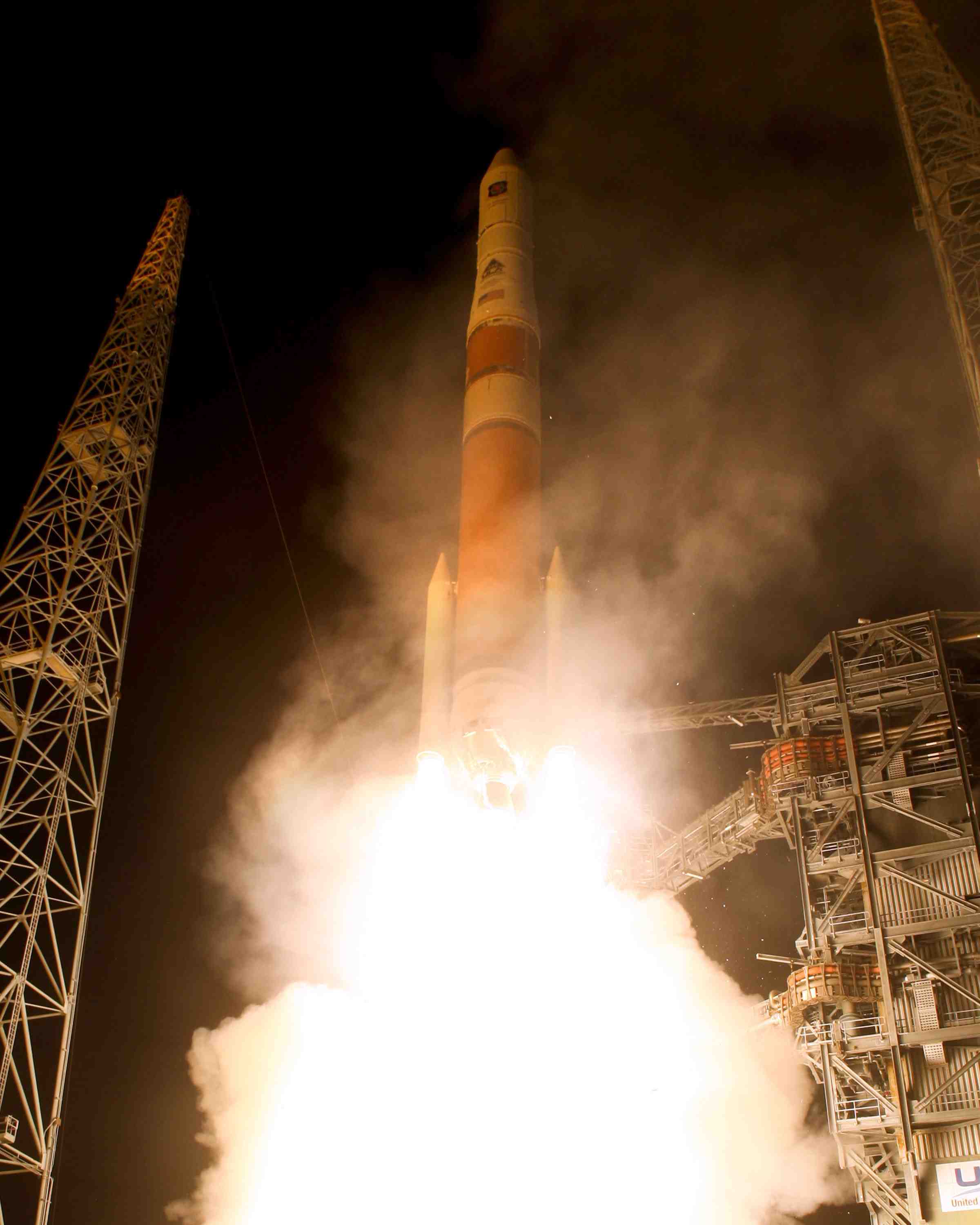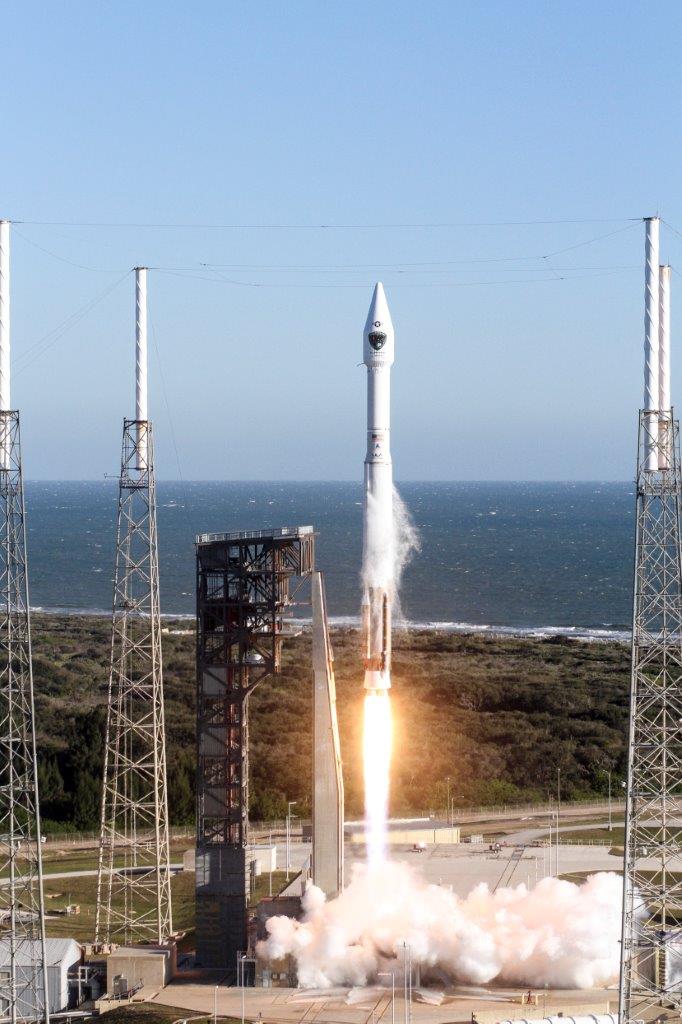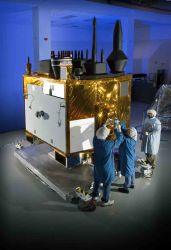 IIF SV1 Takes Off. Photo Courtesy of Pat Corkery, United Launch Alliance
IIF SV1 Takes Off. Photo Courtesy of Pat Corkery, United Launch AllianceBoeing announced today (May 28) that it has acquired the first on-orbit signals from the first GPS Block IIF satellite, the inaugural spacecraft in a 12-satellite block that the company is building. The signals indicate that the spacecraft bus is functioning normally and ready to begin orbital maneuvers and operational testing.
The satellite was launched May 27 on its fourth attempt aboard a Delta IV rocket at 11:00 (EDT) from Cape Canaveral Air Force Station, Florida. At 2:33 a.m. today, the satellite separated from the rocket’s upper stage, and a ground station on Diego Garcia in the Indian Ocean received the first signals from the newest member of the Air Force’s GPS satellite constellation, according to Boeing.
Boeing announced today (May 28) that it has acquired the first on-orbit signals from the first GPS Block IIF satellite, the inaugural spacecraft in a 12-satellite block that the company is building. The signals indicate that the spacecraft bus is functioning normally and ready to begin orbital maneuvers and operational testing.
The satellite was launched May 27 on its fourth attempt aboard a Delta IV rocket at 11:00 (EDT) from Cape Canaveral Air Force Station, Florida. At 2:33 a.m. today, the satellite separated from the rocket’s upper stage, and a ground station on Diego Garcia in the Indian Ocean received the first signals from the newest member of the Air Force’s GPS satellite constellation, according to Boeing.
The Air Force 19th Space Operations Squadron and Boeing’s Mission Operations Support Center in El Segundo, California, confirmed that the satellite is healthy.
The satellite was placed into the slot 2 position in plane B of the GPS constellation. The satellite is expected to be set healthy for navigation uses approximately 90 days after launch.





